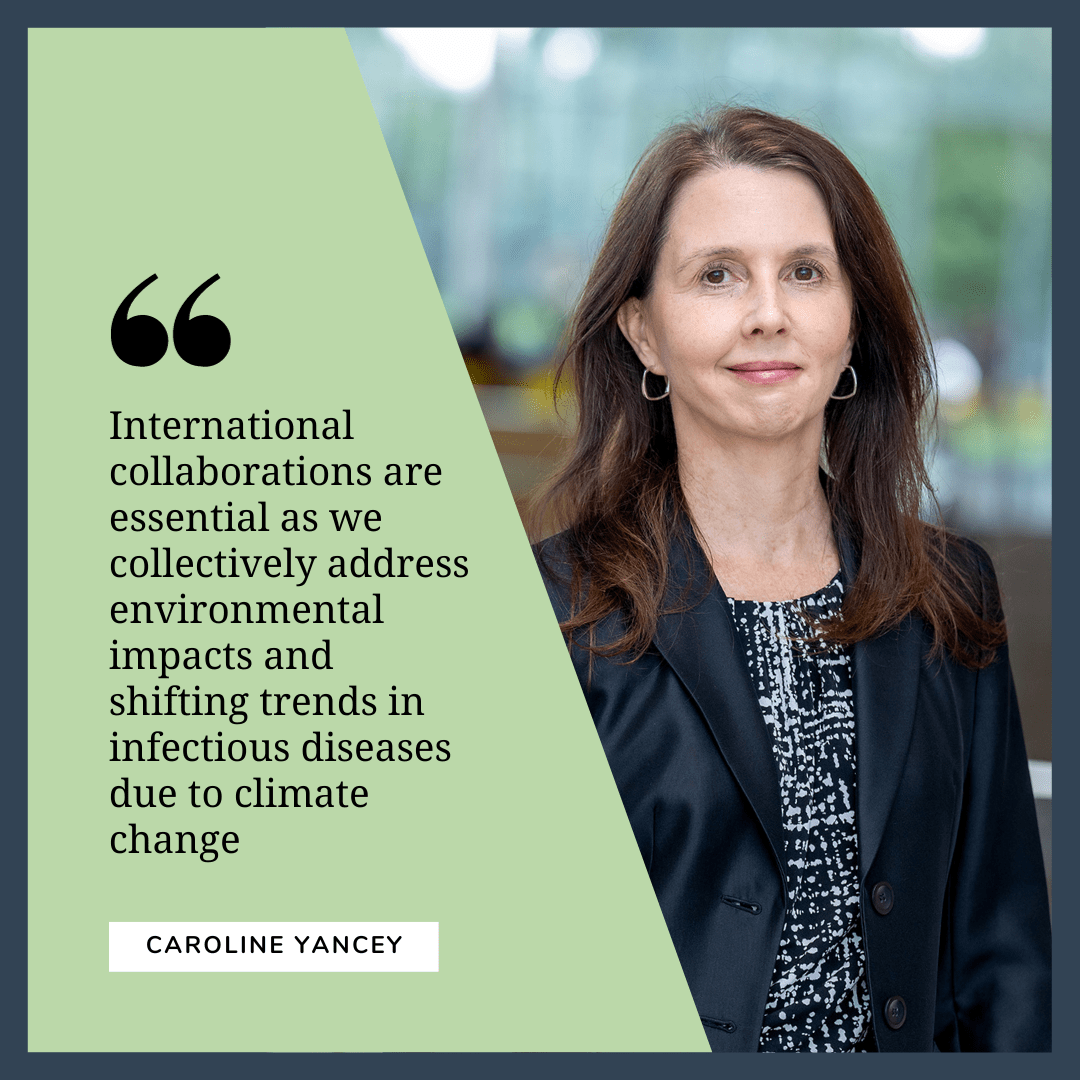Universidad San Francisco de Quito
 Universidad San Francisco de Quito (USFQ) is a private liberal arts university in Ecuador, with a main campus in the high Andean mountains of Quito, a satellite campus in the Galapagos Islands, and a research station in the Amazonian lowlands. USFQ is also one of Cornell’s Global Hubs, which connect Cornell students, alumni, faculty, and staff with universities and communities around the world.
Universidad San Francisco de Quito (USFQ) is a private liberal arts university in Ecuador, with a main campus in the high Andean mountains of Quito, a satellite campus in the Galapagos Islands, and a research station in the Amazonian lowlands. USFQ is also one of Cornell’s Global Hubs, which connect Cornell students, alumni, faculty, and staff with universities and communities around the world.
This year, for the first time, MPH students traveled to Ecuador to work with USFQ’s public health faculty and students on a variety of projects, ranging from interventions to address acute childhood malnutrition in southern Ecuador, to analysis of water contamination in households, agricultural fields, rivers, and lakes. Cornell Public Health Professor of Practice Dr. Caroline Yancey also began work in Ecuador with USFQ’s medical school, gathering data to inform public health education on vector-borne disease prevention in the community.
“The communities we visited were very welcoming,” says Anmol Sethi, who was one of three MPH students to travel to Ecuador this summer. In most places, says Sethi, a lack of continuous funding is the main barrier to improving public health. The funding situation is so frustrating, he notes, because “we saw many interventions that could otherwise be sustainable, and the communities are ready.” Sethi also joined a month-long project with Dr. Valeria Ochoa-Herrera’s environmental engineering lab, collecting and analyzing potable and farm irrigation water samples to identify sources of neoinsecticides, fluorides, heavy metals, and other contaminants that were found in children’s blood samples in Tabacundo, a city northeast of Quito.
In another project launched this year, Dr. Yancey worked with USFQ to develop a knowledge, attitudes, and practices survey for households in rural regions of Ecuador to “better understand the general public’s knowledge and environmental practices” related to cutaneous leishmaniasis, a vector-borne disease transmitted by sand flies. The project received a 2023 Global Hub Seed Grant in partnership with USFQ’s Dr. Gulnara Patricia Borja-Cabrera, and in collaboration with Ecuador’s Ministry of Health. Cutaneous leishmaniasis, which often causes painful skin lesions that can “leave scars, cause people to miss work, and lead to social stigma,” is becoming more prevalent in Ecuador and appearing in new areas, says Dr. Yancey. USFQ medical students will collect household survey data, and MPH students will help analyze the data next. The team will then work with the local Ministry of Health on development of communication materials to help communities learn how to use environmental control strategies to prevent sand fly bites.

International collaborations allow Cornell to have an impact around the world, says Dr. Yancey, who is Associate Dean of International Programs for Cornell’s College of Veterinary Medicine. Working on health issues facing other parts of the world can also help the U.S. prepare for new threats that might emerge due to impacts of climate change, since “changes in temperature, rainfall, and land use can allow vectors such as mosquitoes, ticks, and sand flies to spread into new geographical areas,” she points out.
Dr. Ximena Garzón-Villalba, USFQ’s Dean of Public Health and Ecuador’s former Minister of Public Health, is grateful when collaborations with Cornell and other partners who can expand their capacity to improve public health. “We need as much support as possible to address the many, many needs of Ecuadorian communities,” she says, especially those related to water and air pollution, heavy metal contamination, maternal and child health, disaster preparedness, and poverty.
Written by Audrey Baker
